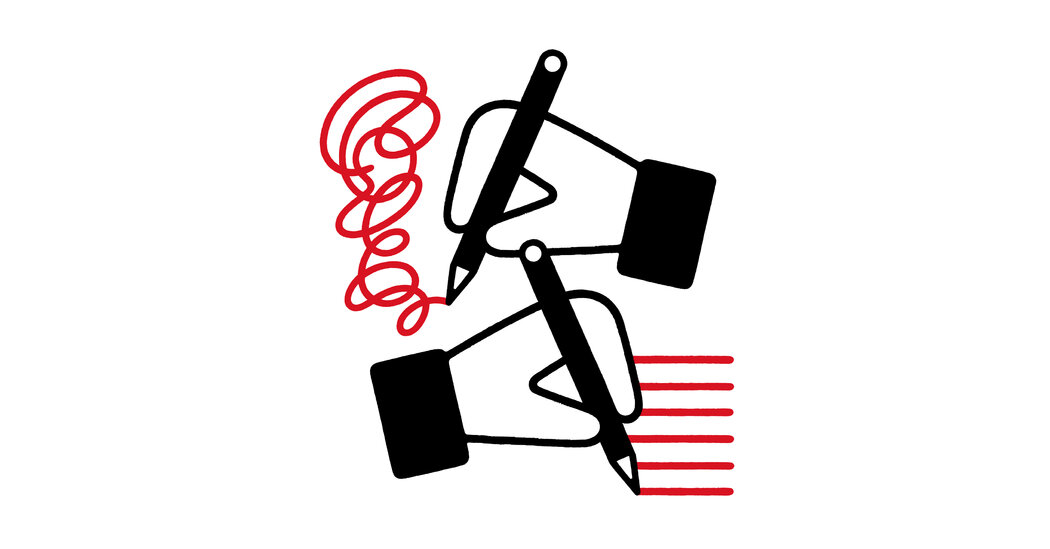
I need help with the gift exchange at my family’s Christmas celebration. The rules: All of the adults buy presents for all the kids, and we also buy one gift ($50 maximum) for an adult whose name we pick at random on Thanksgiving. Every year, I spend lots of time thinking about what gift my recipient might like, and I always spend the maximum dollar amount. The gifts I receive in return are usually cheap and appear to have involved no real thought. I find the exchange disappointing, and it makes me depressed that I keep hoping for more. Is there a better way to handle this?
ALLY
I get it: Your “love language,” as pop psychology puts it, is gifts. For other members of your family, it’s something else. Still, you keep hoping for meaningful presents, and every year you are disappointed. This is like shopping regularly for heirloom tomatoes at the hardware store. You will never find them there! Try to lower your expectations before the unwrapping begins. Consider the other ways your relatives show they care.
Now, let’s go a step further. I assume that you, like many of us, spend a great deal of time thinking about things that may enrich your life: a novel by Elizabeth Strout, quality olive oil, tickets to “Company.” If you don’t yet feel empowered to buy these things for yourself, do it — and enjoy them!
I’m also here to tell you there may come a time when even thoughtful gifts fail to move you. Over the years, in my experience, the joy that once came from gift boxes is replaced by unexpected glimpses of sun-dappled leaves or playing with a cuddly puppy at an animal shelter. Seek out these sensory experiences too. Because our relationship to material culture is always shifting.
The Trouble With Regifting
My neighbors spend their winters in Florida. The other day, a box of pears arrived on their front porch. I moved it to the side of their house so no one would take it. There was a gift message on the box from a friend, wishing them a happy holiday. I emailed my neighbor about the delivery and received a quick reply: She claimed that the pears were a Christmas gift for my family that was accidentally delivered to her address. Do I thank her for the pears, or should I mention the gift message from her family’s friends? I’d hate for them not to get a proper thank you. (Also: The pears are delicious!)
DAN
Remote regifting has a high degree of difficulty. From a distance, we can’t know if a book is inscribed with a personal message, for instance, or if the damned pears came with a note. Gifts should be examined before they are given to another recipient.
Your neighbor’s gesture was thoughtful, despite her cockamamie claim that the pears were always intended for you. (She could have given them to any number of pear lovers who only had to drop by her house to pick them up.)
Spare her the embarrassment of drawing attention to her fib. Place the gift note from their friends with the rest of the mail that’s accumulating in their absence. Your neighbors can send them a thank-you note on their return.
A ‘Wasted’ Wreath
We have a generous client who sends us a large, fresh Christmas wreath every year. While we appreciate the gesture, we are Jewish and not inclined to display a symbol of Christian significance like a wreath. Should we thank the client and tell him the gift is wasted on us, or simply thank the client and give the wreath to an employee who will appreciate it?
P.
Fun fact: Wreaths predate Christianity; their roots trace back to ancient Rome. Still, I take your point. Today, wreaths are associated with Christmas.
Since you felt strongly enough about this issue to write in, you should say something to your client. I wouldn’t tell him that “the gift is wasted” on you, as you suggest, though. Thank him sincerely for his generosity and tell him you’ve given the wreath to an employee who celebrates Christmas. That should do the trick.
You Had to Invite Them?
Friends invited my husband and me to spend New Year’s weekend with them at their country home. It was supposed to be just the four of us, and it sounded like heaven. Since then, I learned that our friends invited another couple to join the party. Unfortunately, they are adamantly opposed to Covid-19 vaccines, and I don’t feel comfortable spending a weekend with them. I know I should send our regrets. But it also seems inevitable that we will find ourselves in the company of unvaccinated people at some point. Am I being overcautious?
ANONYMOUS
Send regrets! If current vaccination rates suggest that we will inadvertently cross paths with unvaccinated people, that’s an argument for taking greater care to avoid them when we are able. It also argues for clarity and directness. Thank your friends for their kind invitation and tell them you don’t feel comfortable spending the weekend with their unvaccinated guests.
For help with your awkward situation, send a question to SocialQ@nytimes.com, to Philip Galanes on Facebook or @SocialQPhilip on Twitter.






